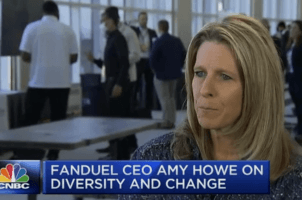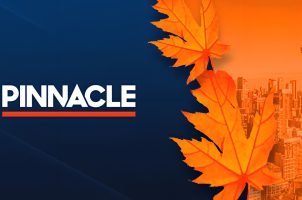Ontario Regulator Muddled Over ‘Loophole’ Allegedly Exploited by Sportsbook Fraudsters
Posted on: July 1, 2022, 01:22h.
Last updated on: July 1, 2022, 04:05h.
Ontario’s liberalized online gaming market is barely three months old, so it’s understandable if its regulations needed a spot of fine-tuning. But Yahoo! Finance Canada reported this week on a loophole so large it has a gravitational pull that could swallow Toronto.

The financial news service claims that some nefarious individuals are taking advantage of the province’s problem gambling self-exclusion program by banning themselves from sportsbooks so they can welch on losing bets.
They are also betting on the other side of a game so they can collect winnings from one operator while using the program to back out of the losing proposition.
But weirdly, there is nothing in Ontario’s regulations that specifically says operators must return stakes to players who self-exclude after they have placed the bet. So, what’s going on?
What the rules do say is that “operators shall cancel all future game transactions for self-excluded individuals.”
The operative word, surely, is “future.” As opposed to “current.” But Yahoo! insists operators “must cancel all pending bets” for gamblers who self-exclude.
What’s a ‘Future Transaction?’
We reached out to the author of the piece, Jeff Lagerquist, for clarification. He told Casino.org that “future” is “being understood as any outstanding bet that’s undecided.”
Several operators have voiced their concerns to the Alcohol and Gaming Commission of Ontario (AGCO). They have asked the regulator to “strengthen the definition” of the term “future game transactions,” according to Lagerquist.
It’s an odd one, because AGCO also regulates live casinos in the province, which are not required to return pending bets to gamblers who self-exclude in the interim – for obvious reasons.
Regulations are designed to minimize fraud rather than let fraudsters make hay. But it seems that in these early days of the new online gaming licensing regime, regulators are misinterpreting their own rules.
“The AGCO is aware of the self-exclusion program concerns you’re referring to, and is gathering more information,” Raymond Kahnert, senior communications advisor with the AGCO, told Lagerquist in an email.
Centralized System Needed
While gamblers might be trying their luck against the new regulations, it’s unlikely that many have profited from the loophole, if any.
That’s because multinational sports betting corporations are not stupid. They have included measures in their terms and conditions to withhold funds where fraud is suspected.
Ontario does not yet have a coordinated and centralized self-exclusion registry. This would let problem gamblers ban themselves from all of the province’s sportsbooks at once. It would also close the “loophole.”
It’s something that the Alcohol and Gaming Commission of Ontario (AGCO) says will be implemented in due course.
Related News Articles
Ontario 2Q GGR Underwhelming, Not Catalyst for Penn Stock, Says Analyst
Pinnacle Latest Sportsbook to Join Ontario’s Regulated Online Market
Advertising Rules Unwritten in Ontario as Ads go Full Throttle
Most Popular
VEGAS MYTHS RE-BUSTED: The Strip is the Brightest Place on Earth
UPDATE: Former Resorts World & MGM Grand Prez Loses Gaming License
Jackpot News Roundup: Two Major Holiday Wins at California’s Sky River Casino
VEGAS MYTHS RE-BUSTED: The Traveling Welcome to Las Vegas Sign
Caesars Virginia in Danville Churns Out Long Lines, Lofty Excitement
Most Commented
-
UPDATE: Whiskey Pete’s Casino Near Las Vegas Closes
— December 20, 2024 — 33 Comments -
Zillow: Town Outside Las Vegas Named the Most Popular Retirement City in 2024
— December 26, 2024 — 30 Comments -
Caesars Virginia in Danville Now Accepting Hotel Room Reservations
— November 27, 2024 — 9 Comments -
UPDATE: Former Resorts World & MGM Grand Prez Loses Gaming License
— December 19, 2024 — 8 Comments -
Oakland A’s Prez Resigns, Raising Questions About Las Vegas Move
— December 27, 2024 — 7 Comments
















No comments yet